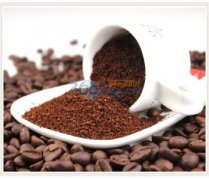The method of tasting coffee in barista training class
I wanted to write a basic knowledge about coffee tasting a long time ago, but I couldn't get started. Do some common sense popularization in Chongqing Brista Coffee West Point training College.

Very often, many coffee lovers who don't know anything can go to the store and shout, "Boss, do you have Blue Mountain Coffee?" I drink Blue Mountain Coffee every day. " There are also some coffee lovers with deep expectations for their own coffee. It is trumpeted that Yunnan coffee is comparable to Blue Mountain. These are quite arbitrary and rude, and the interpretation of the coffee world from this point of view is a kind of harm and ignorance.
First of all, from the perspective of daily production. When we define whether a cup of coffee is of high quality, we must have two basic factors: first, the country of origin, and second, the freshness of coffee roasting. The two are out of balance, and neither of them can extract high-quality coffee liquid. As a result, the feeling of our taste buds is also distorted!
High-quality origin, in the eyes of all coffee lovers, is almost sacred and irreplaceable, which mainly lies in the unique geographical relationship, natural environment, and excellent planting varieties. Like the well-known places we are familiar with, every noun of origin makes us so infatuated and crazy. Ethiopia and Yemen produce high-quality mocha coffee, among which Ethiopia's mocha-Harald, Sidamo and Yegashafi are the most famous. Moka-Matali produced in Yemen is even rarer.
Kenya Coffee is a country full of legends. The Kenyan Mountains and the Great Rift Valley of East Africa cross the territory, creating the legend of Kenyan coffee. Kenya has a mellow taste, lively and calm texture, and can be called the "uncrowned king" in the coffee industry, and is deeply loved by Germans. The purchase of Kenyan coffee by Germany's Tchibo is even more huge. The film [out of Africa] profoundly interprets the harmony between the customs and customs of this magical country and the natural environment.
[American Coffee] almost the whole of Latin America is a paradise for high-quality coffee, of which Colombian coffee is the most representative, and Arabica coffee is the largest exporter, with high quality and very friendly prices. Colombian coffee is bitter and balanced, the taste is clear and clean, mellow thickness and bright sweet, can be regarded as a family demeanor. Jamaica, Cuba, Panama, Costa Rica, Guatemala and El Salvador all produce many famous products.
[Asian Coffee] the coffee producing area in Asia is of the best quality in Indonesia, Sumatra is famous for producing high-quality Mantenin coffee, Robbosa beans in Java have a unique flavor, and the Toraga region of Sulawesi also abounds in high-quality coffee. Indonesian coffee is strong in texture, outstanding in bitterness, excellent in aroma and mellow.
The above are the most extensive definition of origin. Generally speaking, East African coffee is sour, mellow, supple and delicate. It doesn't taste bitter. Among them, Ethiopia, Kenya and Tanzania are represented. Latin American coffee tends to have a balanced taste, moderate acidity and bitterness, high aroma and high overall quality. Balance is a key factor in quality coffee. On the other hand, the coffee in Asia is bitter, weak in acidity and uneven in quality. the classification of coffee in Asia is not as advanced as that in Latin America, and there is even a big gap between Asian coffee and East African countries.
The above and other easy-to-understand definitions of origin only explain to junior enthusiasts that respect for the definition of origin is not a superstition but a basic element of appreciation. Based on the national conditions, since ancient times, too many coffee manufacturers have used cheap coffee raw materials to impersonate imported coffee of origin, which leads to more misinformation, and in the end, the real high-quality coffee of origin is rejected by the country, and inferior, single coffee is very popular, which is undoubtedly a chronic poison to the whole industry. Without good primary materials, it is impossible for a great barista to make a good product.
Of course, the purpose of this article is not to teach people to have a narrow and paranoid understanding of the coffee of origin, but to hope that coffee lovers can maintain a peaceful state of mind and understand the origin of all kinds of coffee, instead of being submissive and elegant. follow the trend of consumption, according to their own taste habits, to choose their favorite coffee.
Important Notice :
前街咖啡 FrontStreet Coffee has moved to new addredd:
FrontStreet Coffee Address: 315,Donghua East Road,GuangZhou
Tel:020 38364473
- Prev

Starbucks Analysis of Starbucks with knowledge of Cafe Management
In 2008, the financial crisis brought a wave of layoffs. A US website recently ranked Starbucks eighth in its 2008 list of US corporate layoffs with 600store closures and 12000 layoffs. In 2008, Starbucks closed its underperforming stores in the US. In January 2009, Starbucks spokesman DebTrevino announced that another 300 stores would be closed this year. According to 08
- Next

Coffee shop decoration knowledge how to create coffee shop style
One: there are more and more cafes! How to create a cafe style, although the point is whether the coffee is good or not, but the beautiful cafe will give the store extra points! If you have a huge bean dryer in your store, then a great coffee maker and beautiful decoration is the icing on the cake! Two: the most important thing is that the cafe is clean and messy.
Related
- What documents do you need to go through to open a coffee shop? coffee shop coffee shop certificate processing process
- How to purchase Coffee beans in small Cafe how to choose a suitable supplier for domestic Coffee supply Company
- How to drink Starbucks Fragrance White Coffee? how to make Australian White Coffee? what Italian coffee beans are recommended?
- The Story of Flora Coffee: the name of Flora Coffee Bean and the implication of the Flowers on Florna Coffee
- How much does a cup of coffee cost? How much is the profit of a cup of coffee? What is the profit of the coffee shop in a year?
- Yunnan small Coffee, known as "fragrant Coffee", introduces the characteristics of Alpine Arabica Coffee producing areas in Yunnan, China
- 2023 latest Starbucks full menu price list how much is a cup of Starbucks coffee what is better to drink the most popular hot and cold drinks recommended
- Starbucks different kinds of Coffee Price list Starbucks menu 2023 Top Ten Best drinks in Starbucks
- Starbucks Spring praise Comprehensive matching Coffee Bean theme Story Packaging implication and taste description
- The cost of a cup of coffee latte American coffee cost price and selling price

